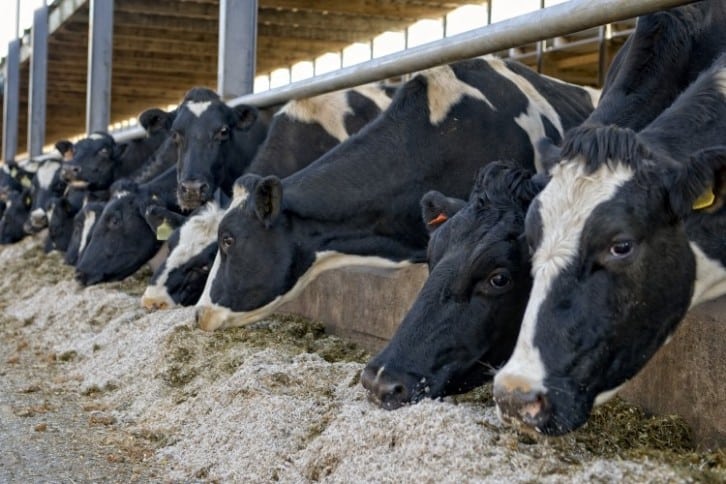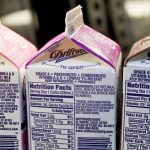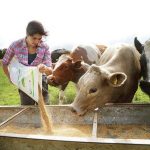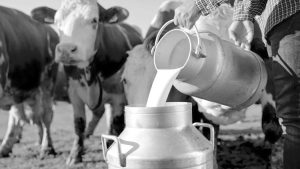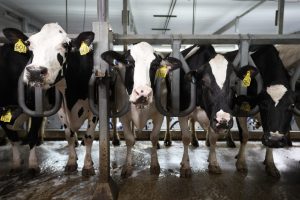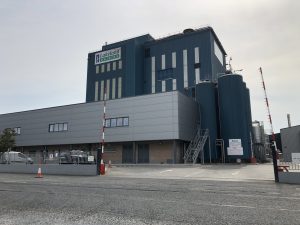
The largest US dairy co-op is set to implement Bovaer in a pilot project in the western US, while also testing out a carbon marketplace scheme.
Dairy Farmers of America (DFA) will receive a $22.8m grant from the USDA’s Regional Conservation Partnership Program to run the pilot and scale methane-reducing practices by implementing the dsm-firmenich-produced feed additive Bovaer.
Also known as 3-NOP in the US, Bovaer is yet to receive approval by the FDA, which is widely expected to happen in H1 2024. The product is one of the most well-researched feed additives in the world and is already being implemented by dairy producers in Europe, including Bel Group, Valio, and Arla Foods. On average, it reduces enteric methane emissions by 30% from dairy cows.
DFA is planning to launch the trial at farms in western US, specifically California, Utah and Idaho. “Once the FDA has approved methane-suppressing feed additives, we will make farmers in the select regions aware of the opportunity presented in this pilot project,” Jackie Klippenstein, senior vice president and chief government and industry relations officer at DFA told DairyReporter.
Asked if DFA had trialed methane-suppressing feed additives before, Klippenstein said different trials with customer partners were already underway on some farms in Colorado, New Mexico, Kansas, Vermont and New York. “These trials to date have been small in scope, but impactful,” she commented.
Convincing farmers
There is currently limited data on the attitudes of dairy farmers towards methane-inhibiting feed additives. A recent evidence call by the UK’s Department for Environment, Food & Rural Affairs revealed mixed responses from farmer respondents, with 41% admitting to harbor ‘mainly’ or ‘very negative’ perceptions towards the use of such products in livestock diets, versus a quarter that had positive perceptions.
Meanwhile, a 2022 study carried out in Sweden (see sources at the end of this article) included a Q&A with a small group of farmers to determine their attitudes towards the use of methane reduction additives; those suggested a more positive view from producers, 48% of whom stated they viewed the technology positively, but 23% had a negative opinion and almost as many (29%) had neither positive nor negative views.
Asked about DFA farmers’ current perceptions towards the technology – and how the co-op is planning to address any questions or concerns – Klippenstein said: “Many of our farmer-owners are aware of methane-reducing feed additive technologies and interested in looking for new ways to help protect the environment. Others will have the chance to learn more about this innovation.
“Once the FDA has approved methane-suppressing feed additives, we will make farmers in the select regions aware of the opportunity presented in this pilot project. As we do currently with other feed and on-farm initiatives, we will work with our farmer-owners and their vets/nutritionists to ensure they have the information they need to make informed decisions about whether implementing a feed additive into their herds’ feeding routines makes sense for them.”
“Dairy farmers have been on a sustainability journey long before it was a buzzword with consumers. They’re always thinking about the next sustainable effort or technology for their farm because taking care of the land, their animals and the air and water around them means preserving the farm to be here for the next generation.”
She added: “We think this is an interesting area with potential to help reduce emissions on farms. But, this is just one of the ways farmers are making a positive impact on the environment, and we know that the cumulative impact of all their efforts is significant in terms of what dairy is driving in terms of climate solutions.
“Initial results from trials have been promising, and we’re looking forward to helping scale up the practices, but also want to ensure farmers are being recognized and compensated for accelerating the adoption of these types of practices.”
Carbon insetting and consumer perceptions
Speaking of rewards, DFA also announced farmers who participate in the pilots will be able to receive compensation for their carbon removals through Athian’s carbon marketplace.
“[Athian] have established a first-of-its-kind voluntary livestock carbon insetting marketplace, with the first accepted protocol aimed at reducing enteric methane emissions and improving feed utilization,” Klippenstein explained. “We are optimistic that tools and systems are rolling out that will accurately measure the progress our farmer-owners are making and that they will finally be compensated for their efforts.”
On consumer acceptance, the co-op is taking additional steps to raise awareness about how methane-suppressing feed additives work and clear up any confusion regarding their safety. “We know consumers are looking for brands and companies that have stepped up efforts to help protect the planet,” Klippenstein said. “We have been sharing the impact and focus around DFA farmers’ sustainability efforts with consumers through our Nerd Herd campaign, which may provide a great opportunity to help educate consumers about feed additives and the impact they can have.”
Sources: Methane mitigating feed additives in future dairy production
Author: Laasonen, O., E.,
Published: Molecular Sciences, 2022:54 https://stud.epsilon.slu.se/18217/3/laasonen-e-20220818.pdf
